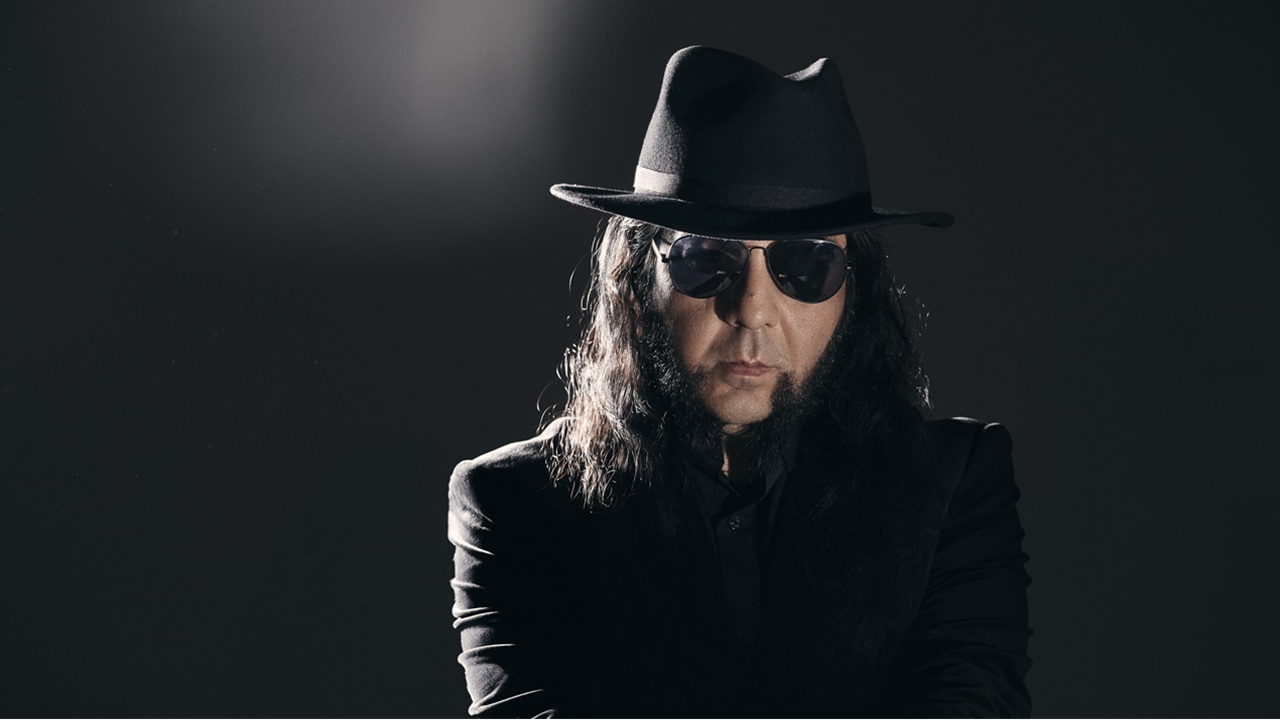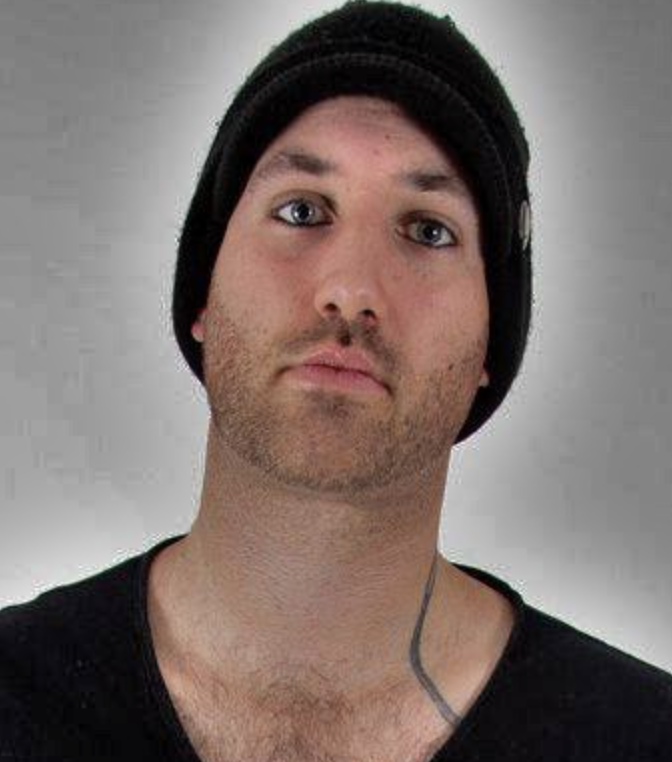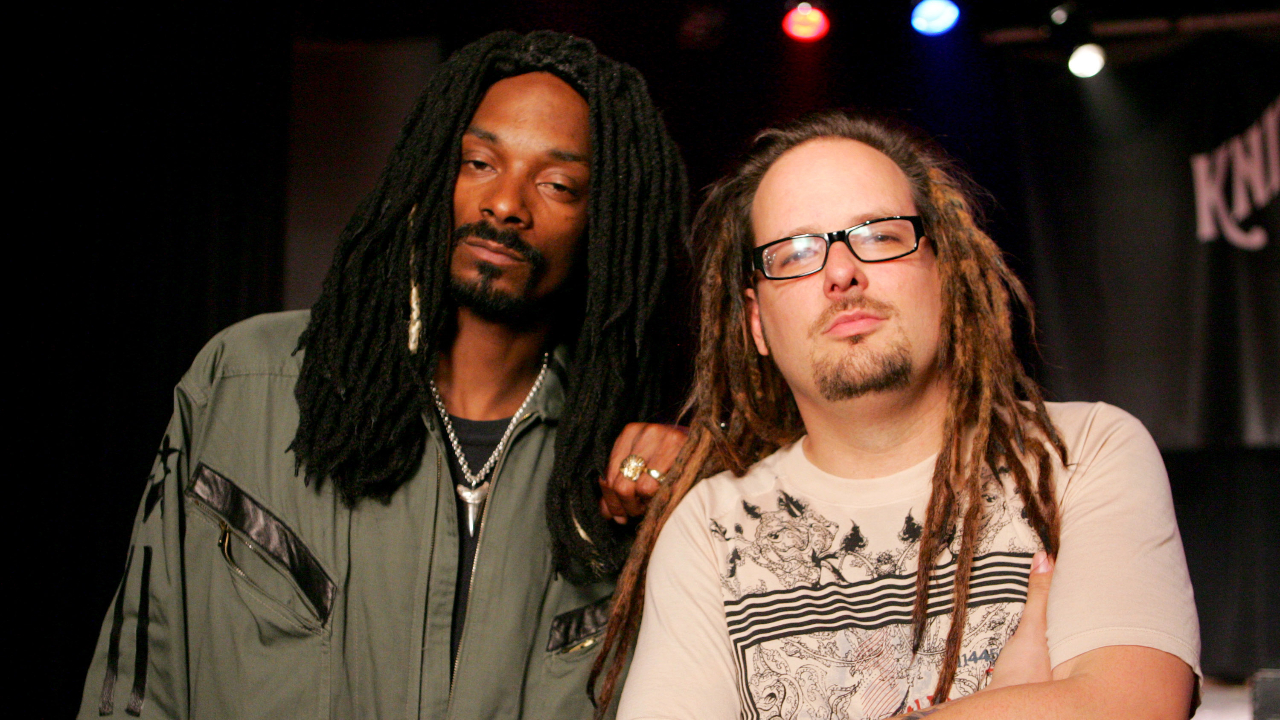"Nobody wanted to sign us, because we didn’t sound like Korn or Limp Bizkit." How Daron Malakian went from nu metal misfit to international metal star with System Of A Down and Scars On Broadway
System Of A Down might not've fit in, but they helped reshape metal for generations to come

For someone who has written some of the wildest and weirdest music of the last 30 years, Daron Malakian is a man of remarkably simple pleasures. When Hammer asks the System Of A Down and Scars On Broadway guitarist (and singer in the latter) what he does outside of music, there’s a long pause.
“Not much! I watch some sports with my father-in-law, play a bit of golf,” he says with a laugh, aware of the apparent mundanity of it. But then music has been Daron’s major obsession ever since he began collecting Kiss albums at the age of four.
Born and raised in Los Angeles to Armenian parents, he cut his teeth on the mid-90s club circuit with his first band, Soil, who would evolve into System Of A Down. A string of successful albums followed, including 1998’s self-titled debut and 2001’s multi-platinum Toxicity, before the band went on hiatus in 2006.
System have periodically resurfaced since then, though they haven’t made an album since 2005’s Mezmerize and Hypnotize one-two (he brushes off talk of new System music today). Instead, Scars On Broadway have become his main creative outlet, albeit a sporadic one.
Launched as a solo project in 2008 during SOAD’s initial break, they’ve just released their third album, Addicted To The Violence. Some of the songs date back years, but the record’s themes remain relevant, from society’s desensitisation to violence (Killing Spree) to frustration at divisive, dogmatic politics (Your Lives Burn). As he puts it: “The world keeps evolving and continues to be more and more ridiculous.”

It’s been seven years since the last Scars On Broadway album. What inspired you to resurrect the band and release a new album?
“The timing was just right. I don’t sit down and think about writing an album; I write songs, and sometimes inspiration just hits you, and you feel like some of these songs that are floating around in your consciousness are ready to be heard.”
Sign up below to get the latest from Metal Hammer, plus exclusive special offers, direct to your inbox!
Were the songs all written with Scars On Broadway in mind?
“No. Some of these songs are really old, some of them are new and collaborations with Orbel [Babayan, Scars On Broadway guitarist]. I can’t tell you, ‘I’m gonna go home and write these great songs tonight!’ When a song comes, it’s something that impresses me. I’m like, ‘Hell yeah! Another one happened!’ I just try and listen and be sensitive, and when the time is right, let people hear them. The time for Scars felt right.”
The themes of songs such as Your Lives Burn and Killing Spree seem very relevant right now.
“Killing Spree I wrote a long, long time ago. Now, you see someone on a subway being taunted, abused or hurt and you’ll see people recording it instead of helping them… you’ll see a kid walk into his school and shoot his classmates… you’ll see riots in the streets – all this is happening. And a song like Killing Spree to me is not for or against any of it, it’s just ‘This is the world I live in.’ Some people are afraid to talk about certain things like that, so I’m just not editing myself. It’s just the world.”
You grew up in an artistic household. What was that like?
“Yeah, both my parents are artists. My dad paints abstract-style paintings and art was always around me. My approach to art is very inspired by my dad. My dad has never given an art exhibition; his stuff has never been in museums or galleries or anything. He paints for himself. He has decades’ worth of paintings in his house that he doesn’t even care to show anybody, but they’re great. And he doesn’t do it for anybody else. He does it for him. And whether I was in System Of A Down or Scars, if I had a fanbase or not, I’d be doing what I do.”
Did your upbringing encourage you to go into an artistic direction?
“No, nobody pushed me into the musical direction, as far back as I could remember. Music has always been important to me. There’s never any memory I have in my life that music wasn’t a part of. I started collecting records at four, five, six years old.”
What were you like at school?
“I was kind of like the class loudmouth, kind of the clown. Me and my friends were like the dudes that got into fights. I was the one guy that liked metal – all my friends were into gangsta rap and shit. I dropped out of high school, but my friends now are all my friends from 30 years ago, and most of them are plumbers. Honestly, I don’t really have like this artsy crowd that I hang out with or anything like that.”
System Of A Down came up through the mid-90s LA club scene. As four Armenian guys, how different did you feel to the other bands at the time?
“At first nobody wanted to sign us, because we didn’t sound like Korn or Limp Bizkit, and we were four Armenian guys! I mean, what the fuck is an Armenian to somebody that lives in Kentucky?! They don’t even know what Armenians are! And we looked like we were just fucking aliens to people, the way our stage presence was and the way our look was at the time. Serj [Tankian, SOAD singer] is a very different, unique kind of frontman, I’m the guitar player who sings and screams and does all the crazy stuff. People didn’t get it at first, but we got it.”
What changed?
“We just went out and did what we did. We were young and hungry, we believed in what we were doing. You’ve got to understand, we were an army before we were signed, we were fucking tearing down the Sunset Strip. Our shows were packed when we weren’t signed. It started with our group of friends, but that shit grew and grew and grew, and we became the biggest band on the Sunset Strip.”
You were lumped in with the nu metal scene, but that doesn’t really feel accurate for what System Of A Down were doing.
“We were lucky that there was a scene. We were able to play, and play in front of audiences that came to see those other bands. But I don’t think anybody sounds like we did. I don’t think we felt like we didn’t belong and I don’t feel like we did belong. But there’s so many fucking genres and then there are subgenres of the subgenre, it just gets lost.
System Of A Down and Scars, that’s what I do. I don’t look at what other bands are doing and say, ‘Well, I’ve got to do that to fit in with those guys.’ But for some reason we fit into that whole [nu metal] thing. That’s just the time that we existed.”
Some great bands came from that scene.
“I’ll say one thing about the original nu metal bands – Deftones, Korn, all the ones that were the first, and add us to that list – they were all doing something unique.
We were all the kids that grew up listening to Metallica and Slayer, all that fucking thrash stuff, but we weren’t copying it. We were taking that influence and we were bringing in other things, other influences, and creating something new with that heavy sound.
All those copy bands, I don’t give a shit about any of them. The ones that came out and started their own thing and did their own thing, those bands deserve credit.”
Speaking of thrash bands, one of your first big tours was with Slayer.
“Our first tour in the US and our first tour in Europe were both opening for Slayer. Some people got it, some people didn’t. We would get booed off the stage in some of those countries.”
You certainly had a polarising effect.
“The approach I took to those Slayer shows was that if they didn’t start chanting ‘Slayer!’ while we were playing, I would make them start chanting ‘Slayer!’ We just didn’t let that faze us. I remember we were in Poland and people didn’t get it at all.
They booed us off the stage, they threw things at us, they threw coins, they threw a bagel at Serj! But we just kept doing what we do and moving forward. Like, if I was a comedian, I find my jokes funny – if everyone else isn’t laughing, I don’t care.”
It’s funny you mention comedy. System Of A Down were pigeonholed as a political band, but there’s humour in a lot of your songs.
“I appreciate you saying that, because what you’re saying is what I feel. People would get really stuck on the politics. The bandmembers, we don’t all agree on one thing when it comes to politics. I think when there’s members of the band that are a little outspoken about their politics, people think that everyone’s politics are the same as what Serj is saying or whatever John [Dolmayan, SOAD drummer] is saying. But there are more layers than just politics.”
There’s plenty of your lyrics that are clearly not political!
“Sure. I write whatever is spat out of me at that moment. I didn’t actually sit there and write on a piece of paper ‘My cock is much bigger than yours!’ [from SOAD’s Cigaro]. I just said that while I was riffing and I was like, ‘OK, I don’t even know what the fuck that means.’ But that’s how I felt at that fucking moment.”
Those different moods are what so many people love about your work in System and Scars On Broadway.
“Because life is not one topic. Life has moments when you’re happy, when you’re sad, when you’re funny, when you’re an asshole, where you’re serious. It’s got to have all of that because, in me, all of that exists, and if I can’t express those sides of me, then I feel like I’m in a box as an artist.
I think the one thing System and Scars both share is the different layers of emotions, character and feelings that come out in the music that I write. That’s because I don’t sit there and say, ‘Well I gotta be heavy metal’ all the time.”
How did the songwriting dynamic work when you were creating music for SOAD?
“That’s hard for me to answer, because I feel like my songwriting process is quite different to a lot of artists. Chop Suey! for example, I wrote that on tour in the back of the bus. I had a guitar, an acoustic guitar, and I just wrote that arrangement. I don’t write riffs, I write songs. Chop Suey! I brought in with the vocals.
Sometimes Serj would use that melody and write different lyrics – for example the original lyrics for Chop Suey! were: ‘Wake up / Tell me what you think about tomorrow / Is there gonna be a pain in sorrow? / Tell me what you think about the people / Is there going to be another sequel?’ That was my line. But then it’s Serj saying ‘Wake up, grab a brush…’.
We would collaborate in that way, but I’d say 85 to 90% of the time it was me bringing in the whole thing.”
Did you know that you were on to something special with those songs?
“I wrote all of the Toxicity record while I was still living with my parents. They would hear me playing my guitar in my room, and when Toxicity came out, they would hear Aerials or Chop Suey! on the radio or MTV and they’d be like, ‘Oh that’s the one we heard you playing in your room all the time!’ So I think they knew more than me.”
Toxicity was a hugely successful album when it was released in 2001. How weird was it for you when it all blew up?
“If you’d have asked 14-year-old Daron what he was going to do when his dreams came true, he’d have said, ‘Fuck yeah! I’m gonna party! I’m gonna be like Mötley Crüe!’ Then it happened, and I actually became even more focused on my writing. I didn’t really want to leave the house when I was off tour, I still don’t. Being recognised in public, it was weird – people walking up and wanting their picture with me. I just knew I needed to write songs, that’s what was gonna continue this train, not my fucking picture in a magazine.”
SOAD went on hiatus in 2006. Was Scars On Broadway an important outlet for you at that point?
“When System took the hiatus, I’m not gonna lie, it was difficult for me at first because that’s not really what I wanted. But I can’t force other people to do something just because I wanted it. But my first thing was, ‘OK, if I release music, I need an outlet for that’, and Scars became that outlet. I’ll be honest with you, man, I’m just as proud of the Scars stuff as anything I’ve done. I think some of my best shit is on Scars.”
System haven’t made an album since 2005, and you’ve made three Scars On Broadway albums, but presumably you never stop writing. How many songs are you sitting on?
“I don’t know about thousands, but I’ve got a few. If I had a nine-to-five job, I would probably still come back home and write music for myself. But even though we’re not making records with System after all these years, I still do write because it’s an itch and I just got to itch it. It’s like a child plays with his toys. You don’t play with your toys because you’re playing for somebody else, right? You’re playing for your own amusement.”
So many people would love to hear those songs.
“Look, I’m very aware that there’s an audience out there and there’s people that want to hear from me and that’s amazing. Honestly, I’m very blessed, my life is fucking like… I got to pinch myself. But I’m also kind of lazy too when it when it comes to making an album.”
Maybe there’s a big box set of unreleased Daron Malakian songs waiting to be released one day.
“Ha ha ha! Trust me, I tell myself, ‘Dude, you really need to start releasing more music.’ I even tell my guitar player in Scars On Broadway, ‘Remind me that I need to start recording, man!’ I just wish that was my motivation, because if that was my motivation, then I would. I get caught up in my own head, in my own world, and it’s not a priority to me. So, I got to make it a priority and start recording my shit. I just need to motivate myself to do it.”
Addicted To The Violence is out now via Scarred For Life.

Stephen joined the Louder team as a co-host of the Metal Hammer Podcast in late 2011, eventually becoming a regular contributor to the magazine. He has since written hundreds of articles for Metal Hammer, Classic Rock and Louder, specialising in punk, hardcore and 90s metal. He also presents the Trve. Cvlt. Pop! podcast with Gaz Jones and makes regular appearances on the Bangers And Most podcast.
You must confirm your public display name before commenting
Please logout and then login again, you will then be prompted to enter your display name.

